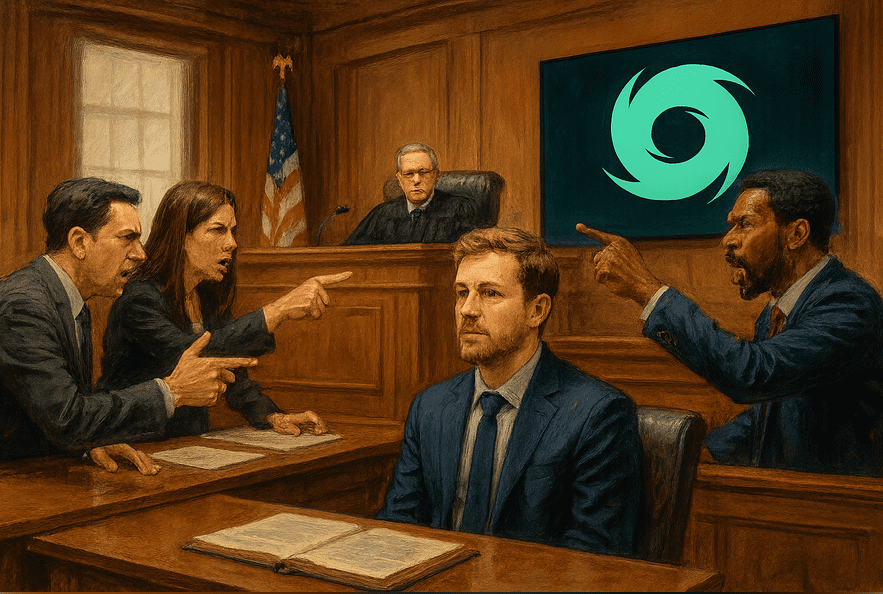Roman Storm, co-founder of Tornado Cash, faces trial in New York for allegedly enabling over $1 billion in money laundering, including funds tied to North Korea’s Lazarus Group. The case, echoing a Dutch conviction of another developer, questions whether coding decentralized tools is a crime or protected speech. Will Storm’s trial redefine crypto innovation?
The Case Narrative
On July 14, 2025, Roman Storm’s trial began in New York’s Southern District, spotlighting the contentious role of Tornado Cash, a decentralized cryptocurrency mixer launched in 2019. Storm faces up to 45 years for conspiracy to commit money laundering, violate U.S. sanctions, and operate an unlicensed money-transmitting business. The U.S. alleges Tornado Cash facilitated over $7 billion in transactions, including $455 million laundered by the Lazarus Group, a North Korean hacking outfit. For a detailed analysis, see our full report on FinCrime Observer.
Tornado Cash anonymizes Ethereum transactions via shared pools, enabling private withdrawals but attracting illicit use. The U.S. Treasury sanctioned the protocol in 2022, and Storm was arrested in 2023. Prosecutors claim he and co-founder Roman Semenov (at large) knew of criminal misuse but failed to act, citing private chats and Storm’s $12 million TORN token profits. The defense argues that open-source code isn’t a crime, invoking First Amendment protections and FinCEN’s 2019 guidance exempting non-custodial software from money transmitter rules.
The Netherlands Case
A parallel case in the Netherlands convicted co-founder Alexey Pertsev of money laundering in 2024, sentencing him to 64 months. Dutch courts held Pertsev liable for $1.2 billion in laundered funds, rejecting claims of decentralization as a defense. This precedent looms over Storm’s trial, though U.S. law offers stronger free speech protections.
The DOJ’s partial dismissal of a money transmitter charge in May 2025 and the Fifth Circuit’s Van Loon ruling (barring Tornado Cash sanctions) bolster Storm’s case, though Judge Failla limited the latter’s use in court. The trial pits financial privacy against cybercrime enforcement. Legitimate uses, like Vitalik Buterin’s anonymous Ukraine donations, clash with Tornado Cash’s exploitation by hackers. A guilty verdict could chill DeFi innovation, while an acquittal might complicate anti-crime efforts. Industry support, including $2.11 million for Storm’s defense, underscores the case’s stakes.
Download the full Tornado Cash Report here.
Call to Action
Got insights on crypto-related cybercrime? Share them securely via Whistle42. Help expose illicit activities or protect innovators. Visit Whistle42 now.
